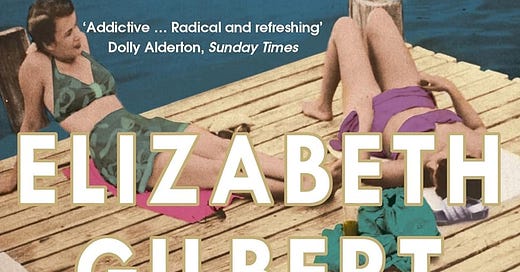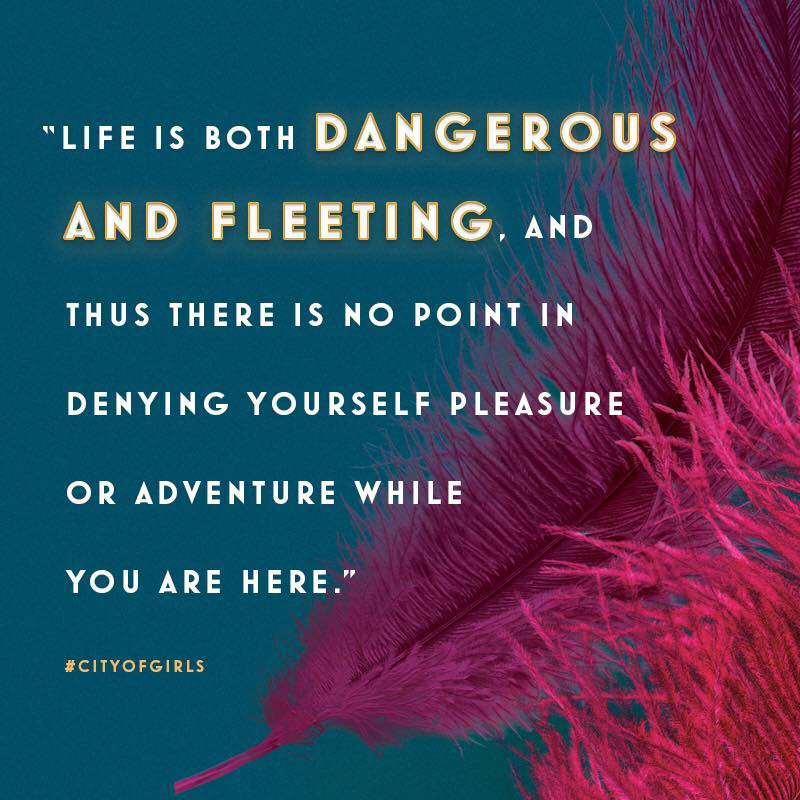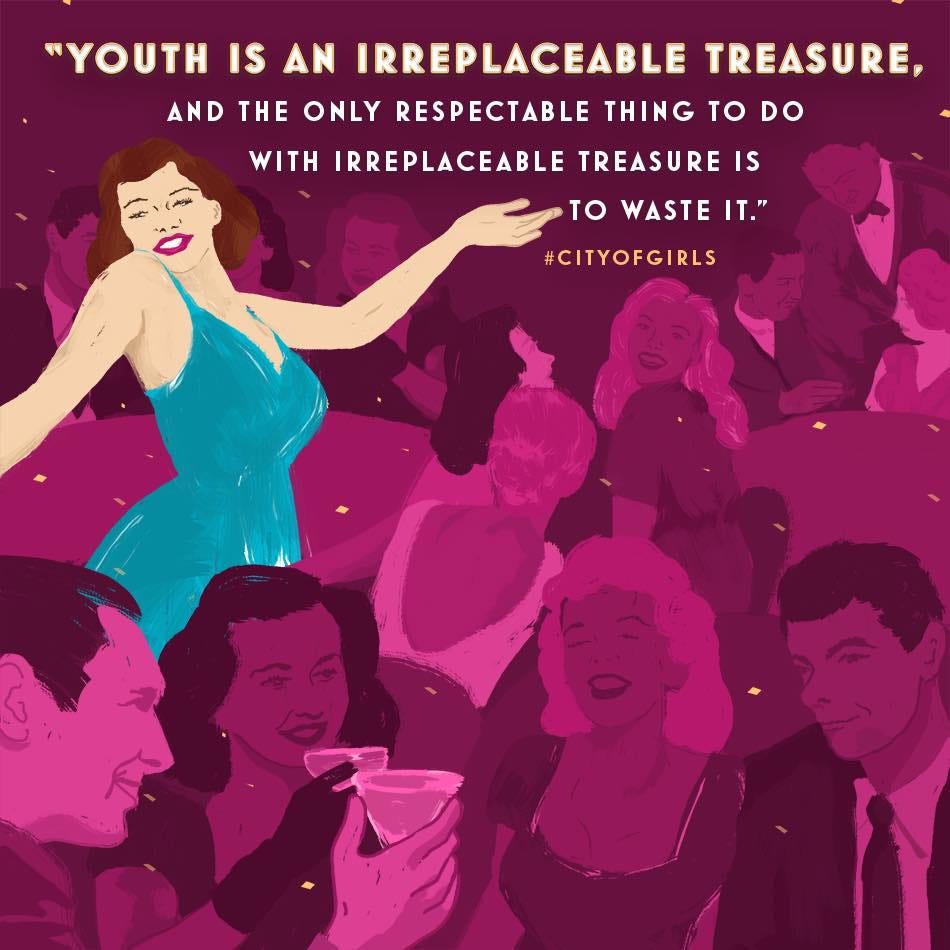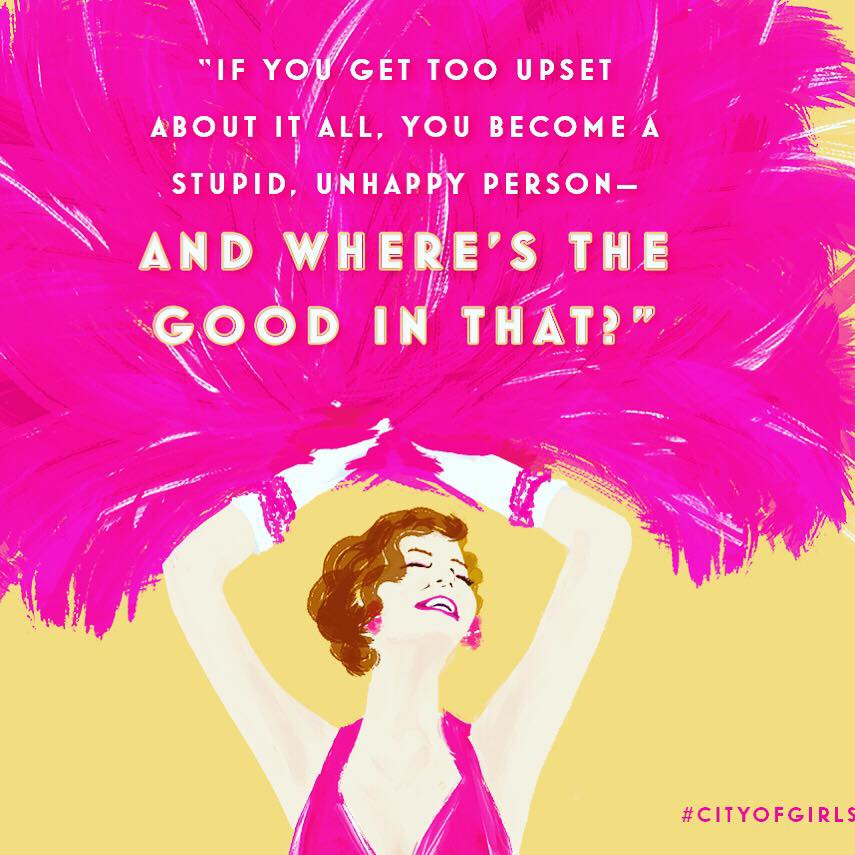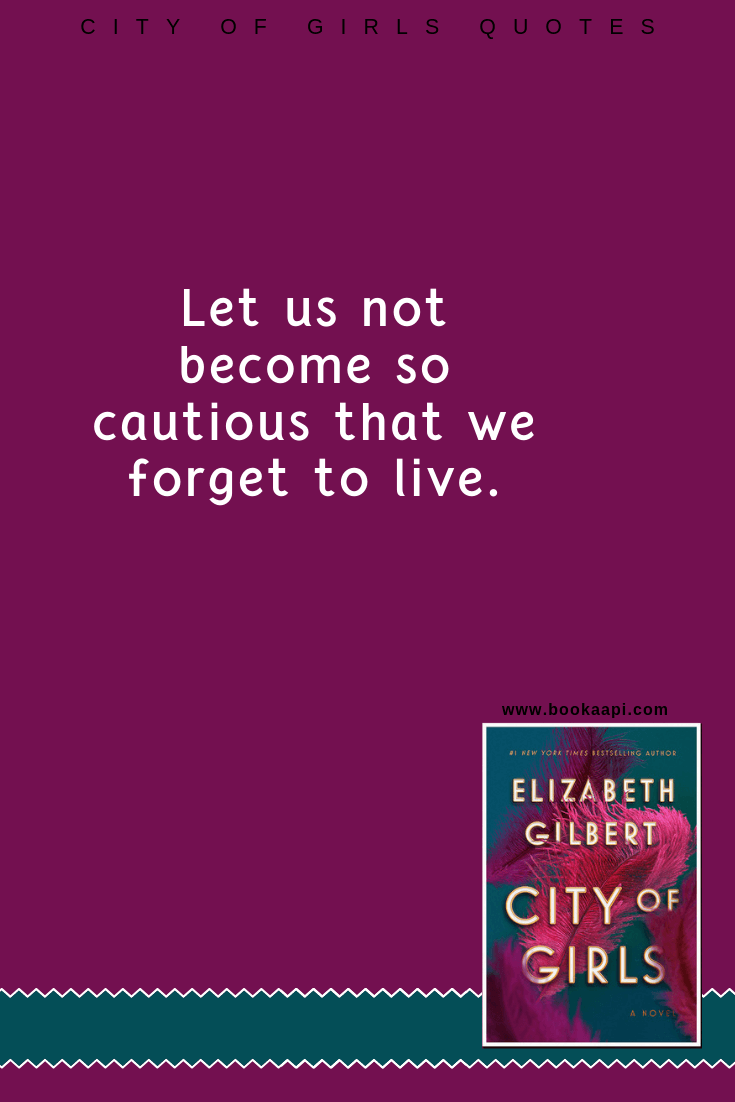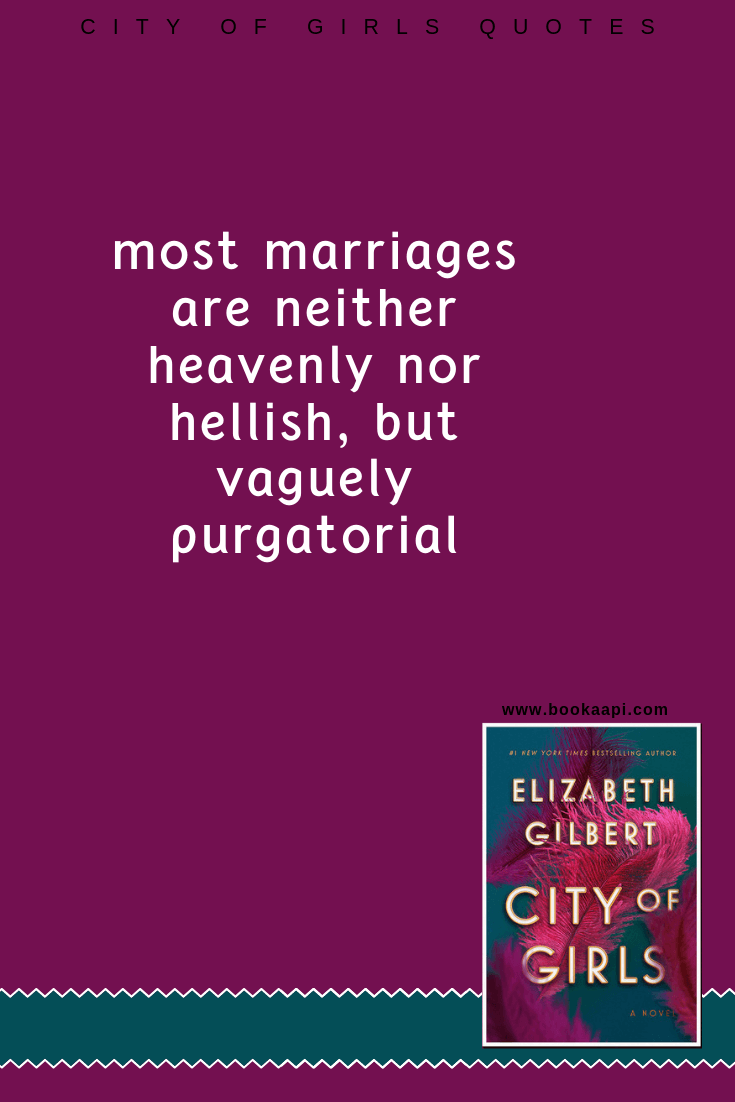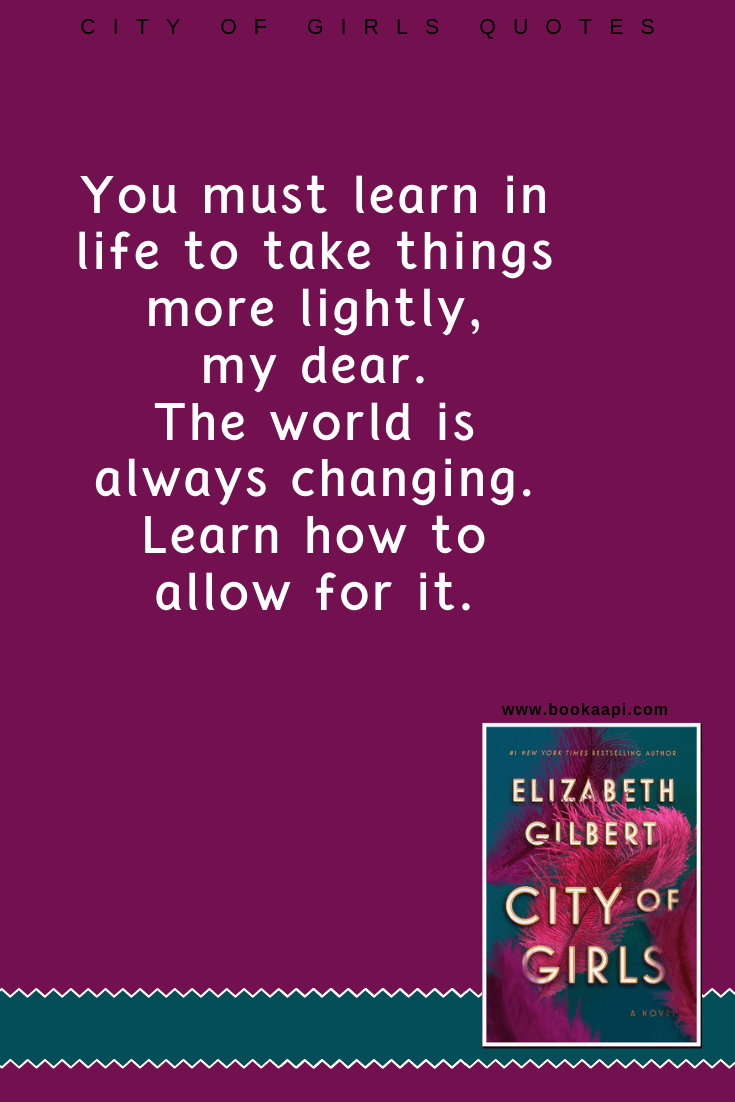Elizabeth Gilbert is everywhere. If you are clued in, you will discover her doing her podcast (Magic Lessons with Elizabeth Gilbert), giving interviews (The Goop Podcast, The Cut, The Atlantic, with Oprah, et al ), taking interviews (with Maria Popova, most famously), speaking publicly (TED talks, for one), being an ardent activist (follow her passionate Instagram account: 800K followers), falling in love again (the crinkly genial Simon MacArthur: alert - post announcing, this no longer on her Instagram feed). And then she writes books, of course. Wonderful ones too, if I may say so.
Elizabeth Gilbert's celebrates life's possibilities, and considers it be criminal to restrict its flow. Her belief that anything is possible, if we are willing to give it our all, has led her own life to be a fascinating journey of introspection, indulgence and discovery.
Ironically, she seems to say, in all its vicissitudes, life is also finally what we are willing to take from it. That spirit has permeated her books and, in 2017's Big Magic, reached an apotheosis of a kind, with its practical reach into the mystical nature of creativity, but also how life needs to have practical fulcrums for creativity to flourish.
City of Girls is a companion piece to every one of Gilbert's deeply-held beliefs. In Vivian, she creates a beautiful, flawed heroine at a time when New York was a glittering siren of a place, a paradise for someone hot-blooded and young. Those were years before the second world war, when everything seemed possible. For Vivian, a comfortably-provided young woman, Vassar College was an encumbrance foisted on her, and the discharge from where, was a relief to her and the college. Her parents - Republican, conservative, snarky - fawned on their upright son, Walter, and had more or less written off a daughter who just didn't fit into their definition of what a daughter ought to be. From Clinton, a small town somewhere out there, she is packed off to New York, to do what she wanted to do, with her Aunt Peg, who, hallelujah, ran a vaudeville theatre with a passion just not commensurate with what she had to offer! And Vivian was given two things in New York which she never had - something to do which added up somewhere (she was a wizard with the sewing machine) and freedom. And she embraced both with absolute fervor. As if there might not be a tomorrow to revel in. With a beautiful showgirl, Celia, she becomes the glitter of an incandescent city. Vivian blooms in the glitz and glare and sexiness of a city which didn't know when revelry should end, if ever. The world war was like a boom somewhere faraway in the skies. But it brought into New York, Aunt Peg's dear friend Edna, a consummate Shakespearean star in London, who, with her handsome and dumb husband Arthur, was suddenly without a home (bombed-out) and precious little by way of money. Aunt Peg embraces them into her home and heart. And then finds an incredible opportunity to harness Edna's name and talent, in a new play, like no other she had ever produced. Enter Peg's estranged husband, Hollywood dilettante and writer par excellence, Billy. And the book charges into its delirious second act. And even as Vivian and Edna come closer, and Vivian falls in love with a handsome louche, the scene is set for high success, high jinks, and disasters. Love, love affair, love triangle. And a way of life finding it's way to a dusty death.
Elizabeth Gilbert paints a vivid and compelling picture of New York and its unhinged hedonism. It's fluffy, but so seductively real, that every tone and tenor, scream and laughter, celebration and orgasm is of life revealing in it's own limitless possibilities. And the characterization cuts deep, and reveals every tic and sigh, every twitch and desire of the characters. And the galaxy is compelling. The swirl of cheap acts, the music cut-out for the stalls, the crease of the cheap dress trimmed into elegance, the words made to fit into a beat, the mournful musician, the heady showgirls. There are a thousand colors which get splattered in this recreation.
It's fun and it's racy, but Gilbert never let's the reader think she is treading shallow water. There is a depth of emotion, and a terrific verisimilitude which make the proceedings rise above the characters and their circumstances.
As the novel moves into its sombre last act, there is a war to reckon with, as also its aftermath. And the paybacks of a life lived faster than it could keep pace. And then a twist of fate and a story-turn, which immediately moves the novel into a realm beyond a fast summer read. The truly moving last part is Gilbert bringing together her sensibilities of grace, redemption, and what constitutes beauty, in one moving frame.
In all her interviews and her talks, as also through her characters, Gilbert speaks of what it means to be a human - a bundle of frailties, fragilities, unexpected strengths, and happenstance which give life both meaning and direction. Often, there is no time nor place for forgiveness, but there is always space for understanding. The incredible elegance of a heart which knows the difference between a good person and being a bad girl, and knowing they can be the same person, is to know that humans are only humans. And our delight in them, and of them, is knowing that we are richer, and our lives are infinitely more beautiful, because of the very flaws which define them.
It is easy to say that redemption is easy to achieve at the end of a fictional story. We will know the truth of this when we finally understand that our lives are nothing but that one true story we can actually write with our own hands.
Did you enjoy what you’ve just read? I long to hear from you. Use this button-
I write on books I love. Here are some other pieces -

